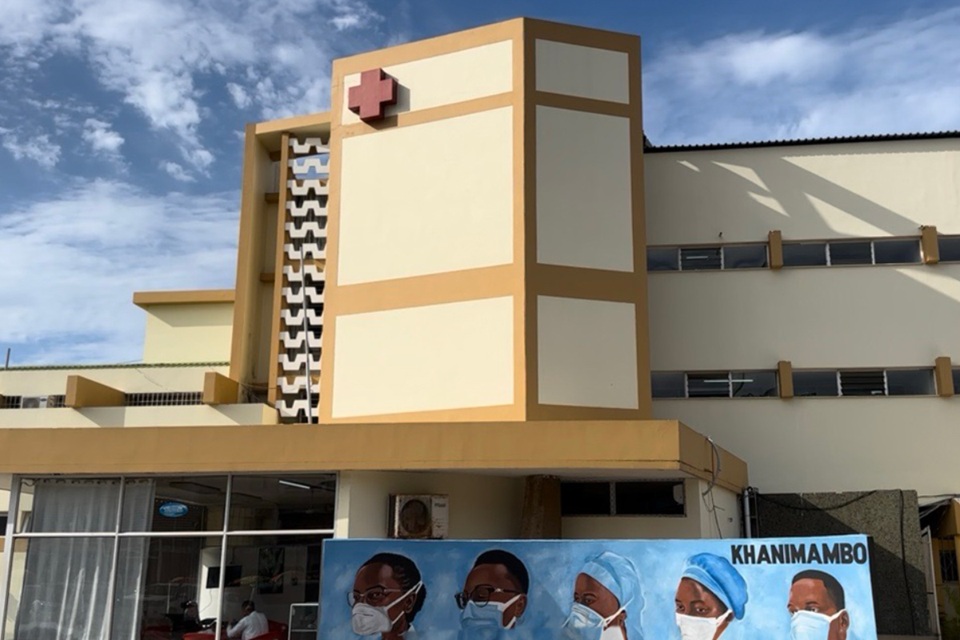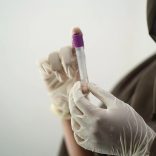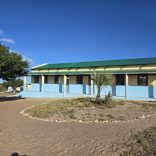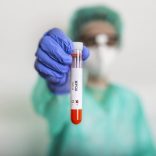Mozambique: Three cases of mpox confirmed in Lago district, in Niassa
Making sure crime doesn’t pay: How recovered assets from criminal activities help Mozambique to deliver public services – UNODC

Cars once driven by traffickers now help investigators carry out their work after being recovered by Mozambique’s Asset Management Office. [Photo: UNODC]
- In Mozambique, fridges that once stored drugs now keep medicines cold. Cars once driven by traffickers now serve police work.
- With UNODC’s support, recovered assets saved the State nearly $7M in 2024
One of the main features of the UN Conventions against Transnational Organized Crime (UNTOC) and against Corruption (UNCAC) was the agreement to elevate the recovery of stolen assets and their management as a fundamental principle of the fight against crime. Proceeds from transnational organized crime and corruption can be seized, confiscated and recovered – even if they were transferred abroad – and returned to the country from which they had been taken or to their rightful owners.
This is particularly useful for developing countries, where crime drains national wealth, and where resources are urgently needed to fund public services or support reconstruction.

Mozambique – a State Party to UNTOC since 2006 and UNCAC since 2008 – is no stranger to the challenge. Corruption, wildlife and drug trafficking and other illicit activities have been generating millions in illicit wealth, which is subsequently laundered through local and international financial markets, undermining legal economies and exacerbating inequalities.
Some of the proceeds of these crimes – as well as illicit gains from previous years – have or will be recovered under international cooperation instruments. But Mozambique’s government wanted to find a way to do more than just recoup its losses – they wanted to ensure that these funds could be put to use for the benefit of its population.
Recovering and repurposing
The government therefore established an Asset Management Office in late 2020, which is responsible for transforming any recovered assets into useful tools or services for society.
The UN Office on Drugs and Crime (UNODC) has been providing technical assistance, helping to create and implement processes to ensure the effective management of the office, while also mentoring and training national officials.

Now, recovered assets like cars and real estate are used by public entities, generating significant yearly savings of upwards of USD $6 million by avoiding the need to rent space or purchase equipment. So far, it has allocated space or assets to 43 public entities in five different provinces.
Refrigerators previously used to store drugs now store medicines at Maputo Central Hospital. Cars once driven by traffickers now help investigators carry out their work, and luxury houses and apartments that once housed criminals are now being used by the state to bolster services.
Other recovered properties have been made available for rent, with much of the revenue reverting to the Government, while other goods are sold at auctions to the public. The first three auctions in 2024 generated over USD $280,000.
To ensure trust with Mozambicans, transparency on the use of these recovered assets was paramount. With UNODC assistance, Mozambique launched a portal to allow any citizen to verify, almost in real time, how these seized assets are being utilized.

“Best of all is that asset management in Mozambique is set up to be sustainable, with the aim of financing 100 per cent of the operations of both the Asset Management Office and the Asset Recovery Office with revenues generated in these processes,” says Luiz Beggiora, Crime Prevention and Criminal Justice Officer at UNODC.
“It’s a virtuous circle: the more assets are managed, the more resources there are to investigate criminal activity. And the more robust the investigations and the more criminal groups are brought to justice, the more assets can be seized,” he explains. “In the end, crime loses, justice is strengthened, and society wins.”
Alda Manjate, Director of Mozambique’s Asset Management Office, notes that the numbers speak for themselves: “Between revenues and savings for the State, the Asset Management Office generated almost USD $7 million in 2024, compared to about USD $1 million in 2022.”
But the Office is not content to stop there. By 2026, Mozambique aims to reach USD $31 million in revenue and savings for the State, with at least 120 goods allocated to public services and 300 goods auctioned, she adds.
“Each recovered asset managed effectively and efficiently is a step towards a safer and fairer Mozambique.”
UNODC’s technical assistance in Mozambique in managing crime-derived recovered assets is made possible through support from Switzerland.












Leave a Reply
Be the First to Comment!
You must be logged in to post a comment.
You must be logged in to post a comment.